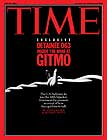Despite the intense pressure, however, al-Qahtani had still provided almost no important intelligence. So, eager to extract information from a prisoner identified as a key al-Qaeda operative, Secretary of Defense Donald Rumsfeld personally authorized a series of harsh interrogation techniques for al-Qahtani.
Concern about the legality of some of those methods — which included the use of dogs, as well as sexual and religious humiliation, sleep and sensory deprivation and prolonged isolation — prompted the Pentagon to outlaw their use in January 2003, barely one month after Rumsfeld first gave permission to use them.
A Pentagon report later found that al-Qahtani had been subjected to treatment that was not, in itself, a violation of Defense Department policy, but that was cumulatively "abusive and degrading." Many of the techniques now could conceivably be prohibited under a law passed in December and sponsored by Sen. John McCain of Arizona that bans U.S. personnel from engaging in "cruel, inhuman and degrading treatment" of prisoners.
Al-Qahatani's poor health was documented in the log of his interrogation, which shows that on December 7, 2002, his heart rate fell to 35 beats per minute, far below his normal level. He was taken by ambulance to a hospital and revived. The Pentagon offered no comment on what provoked the medical emergency.
According to Gutierrez, Al-Qahtani insists he is innocent and that he made many false statements to appease his interrogators, which calls into question his identification of fellow prisoners as members of al-Qaeda. He also told Gutierrez that he had informed interrogators of his false declarations, a contention supported in part by his interrogation log. "He adamantly denies the statements attributed to him; he made false declarations which he tried to recant to his captors and to his lawyer," said Gutierrez.
She also reports that, "because of the involvement of military medical personnel during his torture, he is afraid to seek medical attention from the Guantanamo physicians." Al-Qahtani has recently reported feeling physically unwell, but exact information on his medical condition has not been made public.
Interrogations at Guantanamo have often included a Behavioral Science Consultation Team, known as a BSCT, on which a psychologist, psychiatrist or other medical professionals monitor a prisoner's ability to withstand rigorous questioning. They may also suggest methods to make the interrogation more effective. The Red Cross and the American Medical Association have both objected to the use of doctors to aid interrogations as a violation of medical ethics, a charge the Pentagon rejects. As Gutierrez puts it: "Al-Qahtani is afraid of doctors because these are the people who would revive him and send him back into the same interrogations that led to his pain and physical collapse in the first place."
Gutierrez's December meetings with al-Qahtani took place at Guantanamo's Delta Camp 5, which the military calls a "maximum security, semi-permanent, hardened facility." Thick cement walls loom over the tropical landscape. Inside are two-story cellblocks branching out from a guard station. Thick metal doors seal tiny cells; no one but Military Police can see in or out except for surveillance on closed-circuit television.
Many of the prisoners have been indentified by the Pentagon as high-level al-Qaeda or Taliban fighters captured on battlefields in Afghanistan. They are kept in a solitary confinement and cannot see or communicate with one another.
In Gutierrez's first interview with al-Qahtani on December 13, he initially refused to speak with a lawyer. Gutierrez says that she donned a "hejab" — a headcovering designed to shield him from a face-to-face encounter with his female lawyer out of respect for his sensitivities as a religious Muslim — and eventually managed to arrange their first conversation. In a room barely large enough for three chairs and a small table, Al-Qahtani appeared in an orange jump-suit, his legs shackled. A slight man in his mid 30s with short black hair and a beard, he was initially preoccupied with learning how his aging father in Saudi Arabia had contacted the lawyer, and how he could be sure that she was not another interrogator simply seeking to extract more information, Gutierrez said.
"He asked me the same questions over and over," she added. "His mind wandered. He engaged in long rambling monologues. He desperately sought some means of reassuring himself that I was a real lawyer and would not betray him." A federal court ruling has forbidden authorities to eavesdrop on attorney-client discussions at Guantanamo.
Gutierrez's second round of meetings with al-Qahtani in January took place at Guantanamo's Camp Echo. More than a dozen single-story huts of cement block are set apart from the rest of the prison. Each cell is sealed off from the others and divided down the middle — the prisoner lives on one side and is brought into the other half only for interrogation or visits with a lawyer. At 8 a.m. a warning siren sounds, followed by the playing of the American national anthem.



